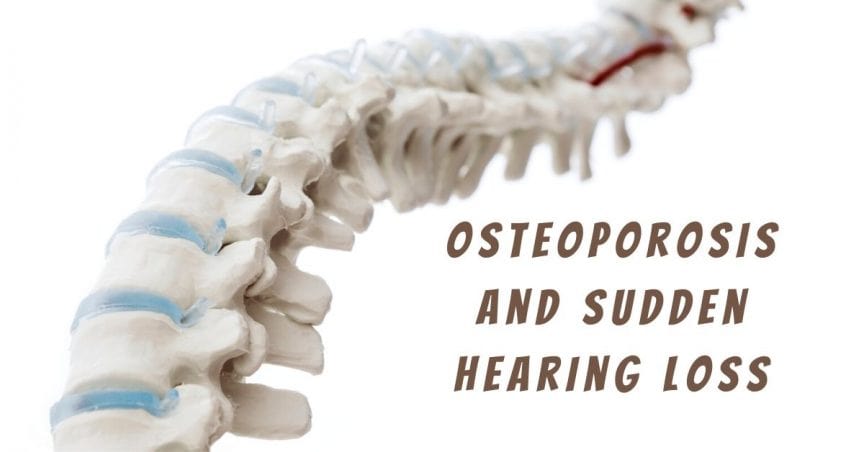- The Emotional Journey of Accepting Hearing Loss - October 25, 2024
- Making a Style Statement with Hearing Aids This Fall - October 15, 2024
- Fireplace Safety and Hearing aids - October 4, 2024
We often don’t think about our hearing until something goes wrong. When you’ve experienced hearing loss, you’ll remember to protect your hearing. But it’s hard to take precautions and protect our hearing health while we can still hear. Knowing what causes hearing loss will help you prevent hearing loss, and maintain your hearing health. Did you know that osteoporosis increases your risk of sudden hearing loss? Here’s everything you need to know about osteoporosis and sudden hearing loss, and how you can protect your hearing.
What is Osteoporosis?
Osteoporosis, or “porous bones”, affects roughly 54 million Americans. Osteoporosis is a degenerative bone disease that weakens the bones. If you have osteoporosis, your bones stop producing new bone cells. Eventually the bones become more porous, and you’ll lose bone density throughout your body. In fact, when you look at these bones through a microscope, you can see tiny holes throughout the bones.
People with osteoporosis are more likely to have an accident or injury. Even a small injury, one that should only leave a bruise, can break or fracture a bone. Weakened bones also make it more difficult to maintain balance, and those with osteoporosis are more likely to have a fall or experience an injury.
Osteoporosis and Your Ears
Researchers in Taiwan are looking at how osteoporosis affects your ears. In a 2015 study analyzing health data from 1 million people, they showed that people with osteoporosis are far more likely to have hearing loss than people with great bone health.
Researchers in Korea have found the same results. In a 2018 study in The Journal of Clinical Endocrinology & Metabolism, researchers collected data from more than 65,000 adults over the age of 50. They also discovered that hearing loss is more common among adults with osteoporosis. The study showed that people with osteoporosis were 40% more likely to experience a sudden hearing loss.
How are Osteoporosis and Sudden Hearing Loss Connected?
Adults with osteoporosis are more likely to have sudden hearing loss, and this becomes even more common with increased age. If you’ve been living with osteoporosis for several years, your risk of hearing loss increases. The studies mentioned earlier both show that osteoporosis and sudden hearing loss are undeniably connected. What researchers don’t know yet is exactly how these two conditions are linked.
One explanation could be inflammation. Osteoporosis leads to inflammation around the bones, and can damage cells throughout the body. When this inflammation happens in the ear, the delicate cells in the ear are easily damaged. Once these cells are damaged, you’ll experience sudden hearing loss.
The sudden hearing loss could also be caused by blood circulation. Osteoporosis weakens the heart, and makes it harder for the heart to pump oxygenated blood through the body and all the way to the extremities. The ears are easily affected by changes in blood flow and oxygen levels, and deprivation could lead to sudden hearing loss.
What To Do if You Have Osteoporosis
If you’re a healthy adult over the age of 50 and you recently broke a bone, ask your doctor about osteoporosis. Bones break for a variety of reasons, and the break could simply have been caused by a fall or injury. However, the bone could also have been weakened due to osteoporosis. Talk to your doctor about bone health, and ask for a bone density test to see if your bones are healthy.
If you have osteoporosis, monitor the health of your bones, and be careful to avoid any injury that could result in a broken bone. There are also some medications available that will strengthen your bone health, and prevent the loss of bone density.
What to Do if You have Sudden Hearing Loss
If you’ve experienced a sudden hearing loss, talk to your doctor about the possible causes of sudden hearing loss. You may have an illness or injury affecting your ears.
After speaking to your doctor, contact us to schedule a hearing test. Whether your hearing loss is in one or both ears, we’ll find out exactly what sounds you’re missing, and recommend the hearing aids that will help you maintain your balance, localize sounds, and hear clearly.

